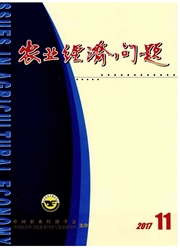

 中文摘要:
中文摘要:
本文以收入差别为逻辑起点,对当前我国农村公共服务需求偏好进行研究发现:现阶段我国农村养老、子女教育和医疗保障服务的需求愿望较为强烈,且生活类公共服务需求愿望强于生产类公共服务需求;随着收入的增加,保障型公共服务需求递减,发展型公共服务需求递增;在农村公共服务满意度方面,高收入群体对公共服务的满意度总体上高于低收入群体。这一研究发现蕴涵三方面的公共政策取向:一是当前完善农村公共服务体系的重点是公众需求强烈的子女教育、医疗保障、养老等基本民生领域;二是在对农村公共服务供给结构组合中,优先保证公众生活类公共服务需求,同时尽力满足公众发展型公共服务需求;三是在农村公共服务供给项目选择上,优先保证低收入群体的公共服务需求。
 英文摘要:
英文摘要:
We have studied the current demand preferences for public services in rural China from the logical starting point of income difference. We found that: people in rural at this stage, whether from the high - income groups or low - income groups, have strongly desire for the public service on the pension, children's education and health care, and have stronger demand for lifestyle public services than that of for production. As income increases, the demand for public services based on security is decreasing,but the demand for development is increasing. The high- income group is more satisfactory, with the public services than the low - income group. This study result contains three aspects of public policy orientation : firstly, the current focus on the rural public service system is the area of the basic livelihood such as children's education, health care, pension, of which the public have stronger desire but have less satisfaction. Secondly, we should ensure the priority needs of the public services on the public life, while striving to meet the public demand for development - based public services. Thirdly, we should give priority to ensure the demand of low - income groups for public services.
 同期刊论文项目
同期刊论文项目
 同项目期刊论文
同项目期刊论文
 期刊信息
期刊信息
